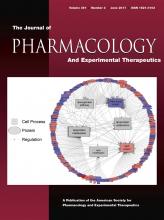Abstract
Phosphoinositide 3-kinases (PI3K) are key signaling enzymes regulating cellular survival, development, and function. Expression of the PI3Kδ isoform is largely restricted to leukocytes and it plays a key role in immune cell development and function. Seletalisib is a novel small-molecule inhibitor of PI3Kδ that was evaluated in biochemical assays, cellular assays of adaptive and innate immunity, and an in vivo rat model of inflammation. Our findings show that seletalisib is a potent, ATP-competitive, and selective PI3Kδ inhibitor able to block protein kinase B (AKT) phosphorylation following activation of the B-cell receptor in a B-cell line. Moreover, seletalisib inhibited N-formyl peptide–stimulated but not phorbol myristate acetate–stimulated superoxide release from human neutrophils, consistent with a PI3Kδ-specific activity. No indications of cytotoxicity were observed in peripheral blood mononuclear cells (PBMCs) or other cell types treated with seletalisib. Findings from cellular assays of adaptive immunity demonstrated that seletalisib blocks human T-cell production of several cytokines from activated T-cells. Additionally, seletalisib inhibited B-cell proliferation and cytokine release. In human whole blood assays, seletalisib inhibited CD69 expression upon B-cell activation and anti-IgE-mediated basophil degranulation. Seletalisib showed dose-dependent inhibition in an in vivo rat model of anti-CD3-antibody-induced interleukin 2 release. Collectively, these data characterize seletalisib as a selective PI3Kδ inhibitor and potential therapeutic candidate for the treatment of B-cell malignancies and autoimmune diseases driven by dysregulated proinflammatory cytokine secretion.
Footnotes
- Received August 22, 2016.
- Accepted March 21, 2017.
↵1 Current affiliation: Immunocore Limited, Abingdon, UK.
↵2 Current affiliation: Beckman Coulter, High Wycombe, UK.
↵3 Current affiliation: Aurelia Bioscience, Nottingham, UK
The studies were funded by UCB Pharma. Medical writing and editorial support was funded by UCB Pharma. All authors are current or former employees of UCB Pharma and may hold stock options in UCB Pharma.
 This article has supplemental material available at jpet.aspetjournals.org.
This article has supplemental material available at jpet.aspetjournals.org.
- Copyright © 2017 by The American Society for Pharmacology and Experimental Therapeutics
JPET articles become freely available 12 months after publication, and remain freely available for 5 years.Non-open access articles that fall outside this five year window are available only to institutional subscribers and current ASPET members, or through the article purchase feature at the bottom of the page.
|







